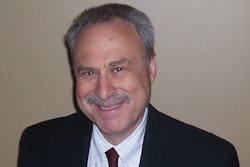May 22--Corruption is a stumbling block to the Philippine foray into the global market as a manufacturer, but implementing serious reform in governance, building key infrastructure and solving its power shortage may transform the country into one of Asia's growth leaders in the next few years, Deloitte Touche Tohmatsu Ltd. (Deloitte Global) said.
"The strong growth in global manufacturing to 2033 will drive world growth, and this presents the Philippines with great potential to integrate into the global supply chain of high-value manufacturing," said Gary Coleman, Deloitte Global managing director for Global Clients and Industries.
In a research, Deloitte Global urges the Philippine government to reduce bribery and corruption through reform measures that include the procurement process, civil servant training and wages, and instituting reporting and enforcement mechanisms.
"If the [Philippine] government makes smart investments in infrastructure--including roads and harbors-- that would help to boost the construction and transportation sectors and lead to higher productivity growth in the coming years as well," he added.
In an interview with the Manila Times, Cid Terosa of the University of Asia and the Pacific, also stressed the importance of manufacturing for the Philippines to fit into the planned integration next year of Asean economies that may result in a combined gross domestic product of about $2 trillion.
"Corruption raises the cost of doing business, siphons resources away from the common good, and diverts production factors to unproductive activities. All these can make economic activities costly and render them uncompetitive," Terosa said.
"We can never be fully ready for it but we need to continue strengthening our manufacturing industries first and then our services," he said. "The Philippines has to raise productivity and competitiveness."
Growth drivers
Deloitte Global emphasized that the key industries that are likely to drive Philippine growth over the next 20 years are manufacturing, business process outsourcing (BPO), construction, transportation and logistics, and information and communications.
Chaly Mah, chief executive officer of Deloitte Asia Pacific, said the country must relax its foreign ownership rule to improve foreign investment inflows.
Under the foreign ownership rules of the Philippine Securities and Exchange Commission, foreign investors may own only up to 40 percent of corporations.
"Relaxing the limits on foreign ownership could boost foreign direct investment, increase efficiency and prompt higher levels of competition," said Mah.
Still, Deloitte predicts that the Philippines will grow faster than Southeast Asia as a whole over the next two decades, with overall GDP expanding 4.8 percent a year between 2014 and 2033.
"Compared with other regions that have experienced slowing economies, the Philippine story is quite remarkable. There are great opportunities -if the Philippine government can seize them -- to fuel growth and become one of the most competitive nations in the region," Mah added.
Copyright 2014 - The Manila Times, Philippines


















